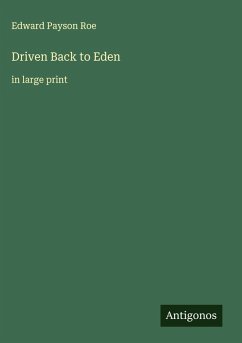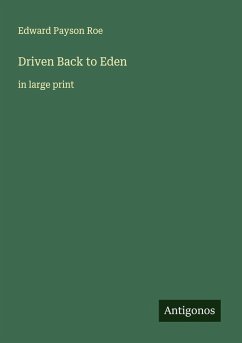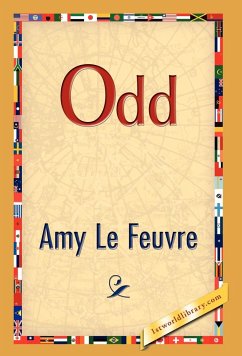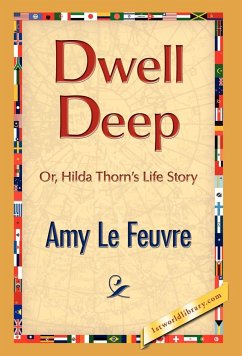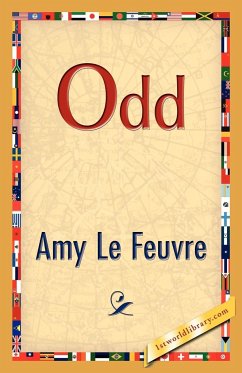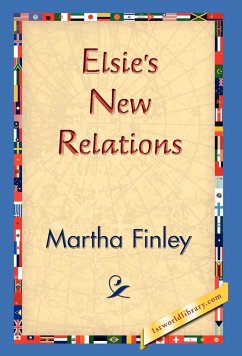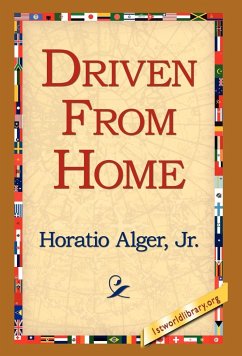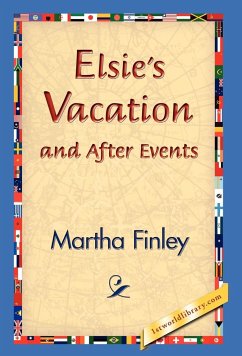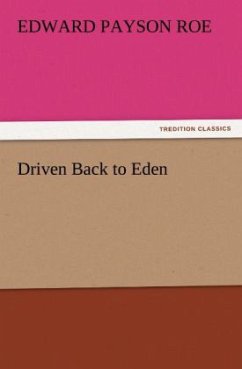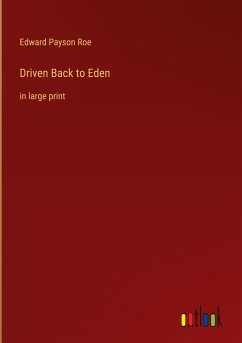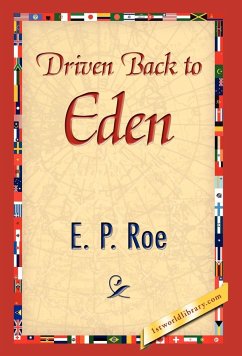
Driven Back to Eden
Versandkostenfrei!
Versandfertig in über 4 Wochen
26,99 €
inkl. MwSt.
Weitere Ausgaben:

PAYBACK Punkte
13 °P sammeln!
Where are the children? "They can't be far away," replied my wife, looking up from her preparations for supper. "Bobsey was here a moment ago. As soon as my back's turned he's out and away. I haven't seen Merton since he brought his books from school, and I suppose Winnie is upstairs with the Daggetts." "I wish, my dear, you could keep the children at home more," I said, a little petulantly. "I wish you would go and find them for me now, and to-morrow take my place-for just one day." "Well, well," I said, with a laugh that had no mirth in it; "only one of your wishes stands much chance of bein...
Where are the children? "They can't be far away," replied my wife, looking up from her preparations for supper. "Bobsey was here a moment ago. As soon as my back's turned he's out and away. I haven't seen Merton since he brought his books from school, and I suppose Winnie is upstairs with the Daggetts." "I wish, my dear, you could keep the children at home more," I said, a little petulantly. "I wish you would go and find them for me now, and to-morrow take my place-for just one day." "Well, well," I said, with a laugh that had no mirth in it; "only one of your wishes stands much chance of being carried out. I'll find the children now if I can without the aid of the police. Mousie, do you feel stronger to-night?"




